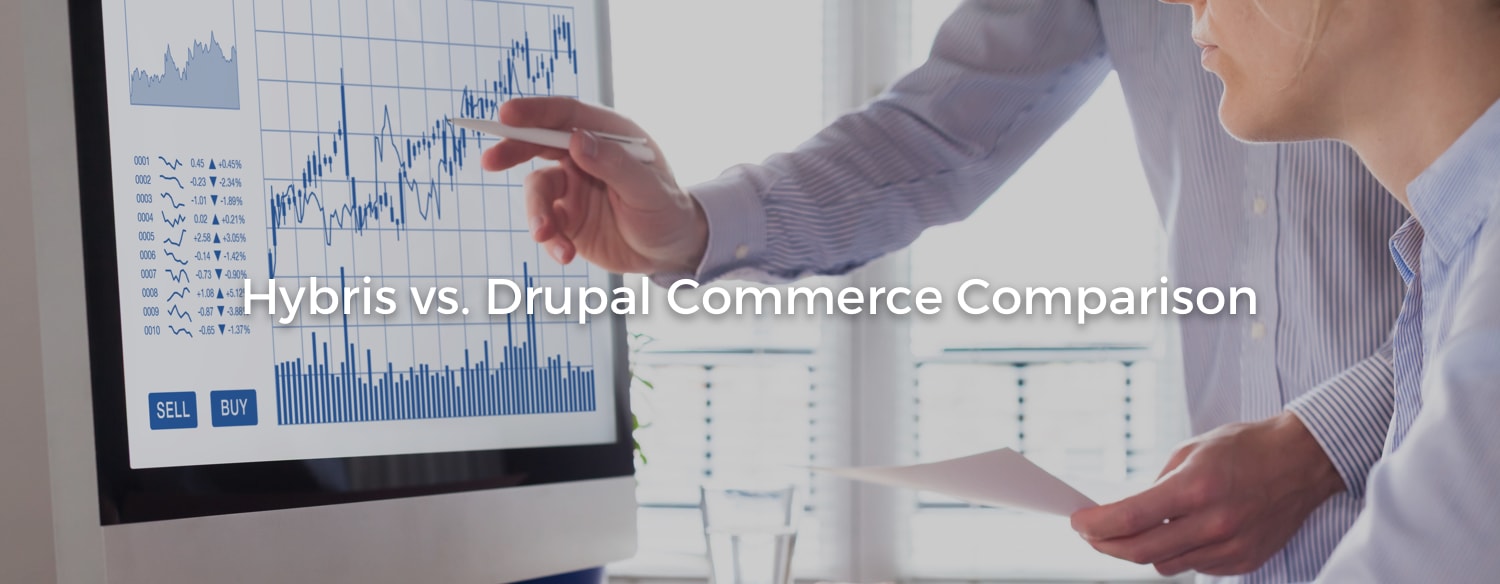Let’s Talk.
Start with a conversation. From there, we can build a plan.

When you begin making plans to invest in an eCommerce platform or to alter where you run your website from, you should evaluate how well the features of a platform will suit your company. While Hybris is a popular solution for mid- to enterprise-level B2B and B2C businesses, Drupal Commerce is also a prominent eCommerce platform known for being both extremely flexible and customizable. Here, we’ll take a comprehensive look at features of these two platforms to help you come to a final decision.
Hybris
Hybris was originally a B2B platform, so it’s well equipped with a thorough set of tools for business management. At the same time, Hybris also works well for B2C companies, and its scalability renders it a great choice for growing mid-level and enterprise-level companies. Though the set-up time can vary depending on the specifics of a project, it’s possible to promptly create a shop with user-friendly features. However, the startup costs are relatively high when compared with other eCommerce solutions on the market. Since the company uses a quote-based pricing system, you will have to speak with them to get a specific idea of what your rate will be.
Drupal Commerce
Drupal Commerce is a platform made as a plugin for Drupal Content Management System and is utilized to develop online stores of many sizes. While the software is easy to use, it’s not the most intuitive or user-friendly platform on the market. However, the community is overall extremely supportive, and once you get the hang of it, you can enjoy virtually limitless customization for your eCommerce store.
Which One Is Best for You?
Unlike Hybris, Drupal Commerce is free to download and offers a certain degree of flexibility without the need to purchase more plugins. Though Drupal doesn’t require a lot of resources to maintain and the system itself is comparatively intuitive, its abilities are limited to the Drupal platform, making it rather limited relative to Hybris.
Hybris’ high cost may be the deciding factor in whether you select this platform over Drupal. But all monetary conditions aside, Hybris is overall better for B2B, but both solutions seem suitable to manage B2C requirements without too much hassle.
Regarding the way the learning curves match up, these two platforms are evenly matched. There aren’t many problems when it comes to how promptly you’ll be able to set up or adjust to these platforms, even if you don’t have technical experience. However, while Drupal’s support community can make all the difference if you run into an issue or need troubleshooting assistance, Hybris lacks the same type of support system for its users.
That said, both solutions are scalable enough to enable you to make changes with your business. The two platforms are also both great options for mid-level businesses, as they contain more than enough capabilities to address these needs. However, Hybris is more suited to large companies that have an extensive budget, as the platform has notoriously slow customer service response times and a smaller community, which make it difficult to fix problems in the timely manner required for smaller-scale eCommerce endeavors.
Want more guidance on which platform to go with? Connect with an expert at Forix to hear all of your options. Get in touch with Forix to learn more about Adobe Experience Manager.
Start with a conversation. From there, we can build a plan.
